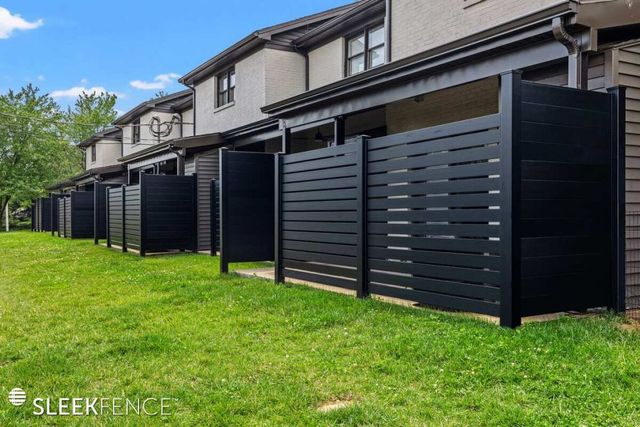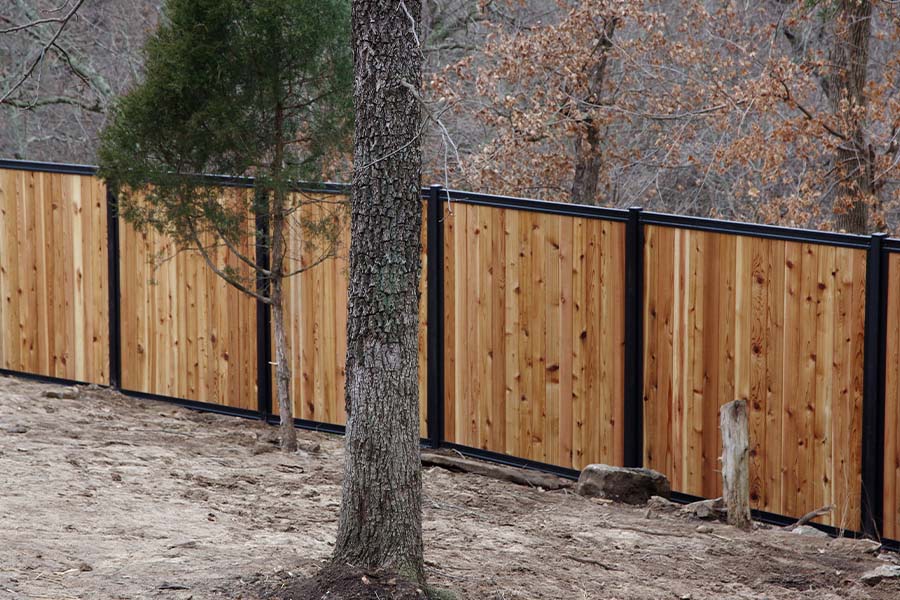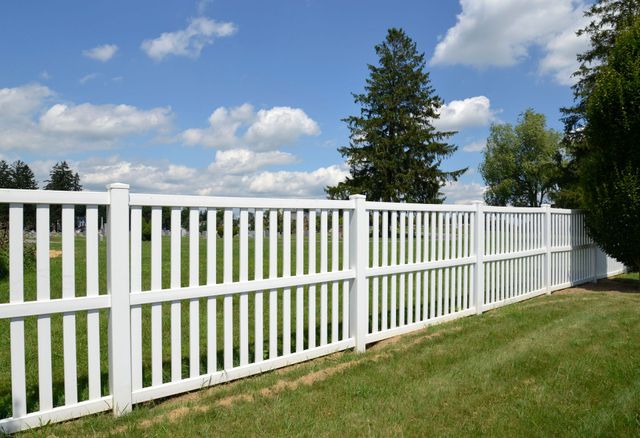All Categories
Featured
If you're taking into consideration mounting a fencing around your property, understanding the authorization requirements in your area is necessary. In this overview, we'll damage down the various permits you may need to set up a fence and just how to guarantee your project stays certified with local legislations.
Why Are Allows Essential for Fence Installation? Permits are required to make certain that the fencing you construct comply with regional building ordinance, zoning laws, and safety requirements. These authorizations remain in area to safeguard your building, the homes around you, and the environment. They guarantee that the fencing will not block energies, web traffic flow, or create threats for pedestrians. Additionally, they help maintain the structural and visual integrity of your community.
![]()
Kinds Of Permits You Might Need. Building Permit. A building permit is the most common demand for installing a fence. This authorization ensures that the structure you build follow regional safety and security codes and policies. You might require to obtain a structure license if your fence surpasses a specific height (generally around 6 feet) The neighborhood authorities will commonly evaluate your strategies to ensure that your fence is safe and structurally audio.
Zoning Permit. A zoning permit makes certain that your fence abides with these policies. Your fencing could need to be set back a particular distance from walkways or residential or commercial property lines.
Homeowners Organization (HOA) Approval. You might need authorization prior to installing a fence if your residential property is component of a home owners organization. HOAs often have stringent guidelines concerning the kind, design, and products used for fences to maintain a consistent look throughout the neighborhood. The HOA may need you to send detailed strategies or request authorization before installment. See to it you follow these standards to avoid potential penalties or penalties.
Specialty Permits. Sometimes, you may require specialized allows based upon the place of your residential property or the nature of your fencing. For example, if your building remains in a flood zone, you may require added authorizations to make sure that your fencing does not obstruct water drainage or water flow. Similarly, if you prepare to construct a fence near an ecologically safeguarded area, you may need a special permit to follow environmental laws.
![]()
Energy Easements and Energy Firm Authorizations. Prior to setting up a fence, you must inspect if your building has an easement. Developing a fence within an easement could conflict with energy maintenance or damage underground lines.
Exactly How to Figure Out Which Allows You Need. Contact Neighborhood Authorities. The initial step in determining the licenses required is to contact your neighborhood structure division or zoning workplace. They can give particular information regarding what permits are required for your area. Many cities have online sources or sites where you can check the needs or perhaps apply for a permit online.
Get In Touch With a Professional Fence Specialist. A regional fencing contractor is usually accustomed to the permit process and neighborhood guidelines. They can aid you browse the demands and make sure that your job is compliant. Many specialists also deal with the permit application procedure in your place, conserving you effort and time.
Evaluation Your Community's HOA Guidelines. If you live in an area controlled by an HOA, ensure to examine their guidelines prior to using for any kind of permits. The HOA might call for specific layouts, products, or elevation constraints for fencings within the community. Submit your strategies to them for authorization before proceeding.
![]()
Repercussions of Not Obtaining a Permit. Setting up a fencing without the called for licenses can lead to significant repercussions. Potential purchasers may be reluctant to buy a property with an unpermitted fence, especially if it's in infraction of zoning regulations.
Verdict. Prior to mounting a fencing on your home, ensure you recognize the regional laws and get any necessary authorizations. Structure authorizations, zoning authorizations, HOA authorizations, and specialty permits all play an important role in making sure that your fencing is safe, lawful, and certified. Putting in the time to research study and safeguard the ideal permits will certainly save you from expensive mistakes and possible lawful issues in the future. Whether you're planning a privacy fencing or an attractive boundary, adhering to these steps will certainly aid make the setup process smooth and hassle-free.
Why Are Allows Essential for Fence Installation? Permits are required to make certain that the fencing you construct comply with regional building ordinance, zoning laws, and safety requirements. These authorizations remain in area to safeguard your building, the homes around you, and the environment. They guarantee that the fencing will not block energies, web traffic flow, or create threats for pedestrians. Additionally, they help maintain the structural and visual integrity of your community.

Kinds Of Permits You Might Need. Building Permit. A building permit is the most common demand for installing a fence. This authorization ensures that the structure you build follow regional safety and security codes and policies. You might require to obtain a structure license if your fence surpasses a specific height (generally around 6 feet) The neighborhood authorities will commonly evaluate your strategies to ensure that your fence is safe and structurally audio.
Zoning Permit. A zoning permit makes certain that your fence abides with these policies. Your fencing could need to be set back a particular distance from walkways or residential or commercial property lines.
Homeowners Organization (HOA) Approval. You might need authorization prior to installing a fence if your residential property is component of a home owners organization. HOAs often have stringent guidelines concerning the kind, design, and products used for fences to maintain a consistent look throughout the neighborhood. The HOA may need you to send detailed strategies or request authorization before installment. See to it you follow these standards to avoid potential penalties or penalties.
Specialty Permits. Sometimes, you may require specialized allows based upon the place of your residential property or the nature of your fencing. For example, if your building remains in a flood zone, you may require added authorizations to make sure that your fencing does not obstruct water drainage or water flow. Similarly, if you prepare to construct a fence near an ecologically safeguarded area, you may need a special permit to follow environmental laws.

Energy Easements and Energy Firm Authorizations. Prior to setting up a fence, you must inspect if your building has an easement. Developing a fence within an easement could conflict with energy maintenance or damage underground lines.
Exactly How to Figure Out Which Allows You Need. Contact Neighborhood Authorities. The initial step in determining the licenses required is to contact your neighborhood structure division or zoning workplace. They can give particular information regarding what permits are required for your area. Many cities have online sources or sites where you can check the needs or perhaps apply for a permit online.
Get In Touch With a Professional Fence Specialist. A regional fencing contractor is usually accustomed to the permit process and neighborhood guidelines. They can aid you browse the demands and make sure that your job is compliant. Many specialists also deal with the permit application procedure in your place, conserving you effort and time.
Evaluation Your Community's HOA Guidelines. If you live in an area controlled by an HOA, ensure to examine their guidelines prior to using for any kind of permits. The HOA might call for specific layouts, products, or elevation constraints for fencings within the community. Submit your strategies to them for authorization before proceeding.

Repercussions of Not Obtaining a Permit. Setting up a fencing without the called for licenses can lead to significant repercussions. Potential purchasers may be reluctant to buy a property with an unpermitted fence, especially if it's in infraction of zoning regulations.
Verdict. Prior to mounting a fencing on your home, ensure you recognize the regional laws and get any necessary authorizations. Structure authorizations, zoning authorizations, HOA authorizations, and specialty permits all play an important role in making sure that your fencing is safe, lawful, and certified. Putting in the time to research study and safeguard the ideal permits will certainly save you from expensive mistakes and possible lawful issues in the future. Whether you're planning a privacy fencing or an attractive boundary, adhering to these steps will certainly aid make the setup process smooth and hassle-free.
Latest Posts
Why Trust NAPA AutoCare? Montclare Auto Repair Delivers the Best Service
Published Apr 20, 25
2 min read
Vision Center South – Troy’s Premier Optometrists Await – Book Now!
Published Apr 20, 25
2 min read
Change Your Home with Resilient Hardwood Flooring from Carpet Interiors Floor & Home
Published Apr 19, 25
1 min read
More
Latest Posts
Why Trust NAPA AutoCare? Montclare Auto Repair Delivers the Best Service
Published Apr 20, 25
2 min read
Vision Center South – Troy’s Premier Optometrists Await – Book Now!
Published Apr 20, 25
2 min read
Change Your Home with Resilient Hardwood Flooring from Carpet Interiors Floor & Home
Published Apr 19, 25
1 min read